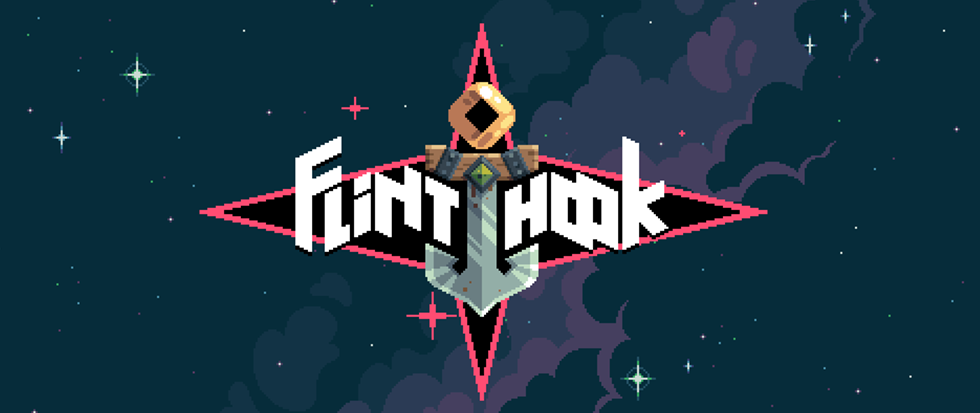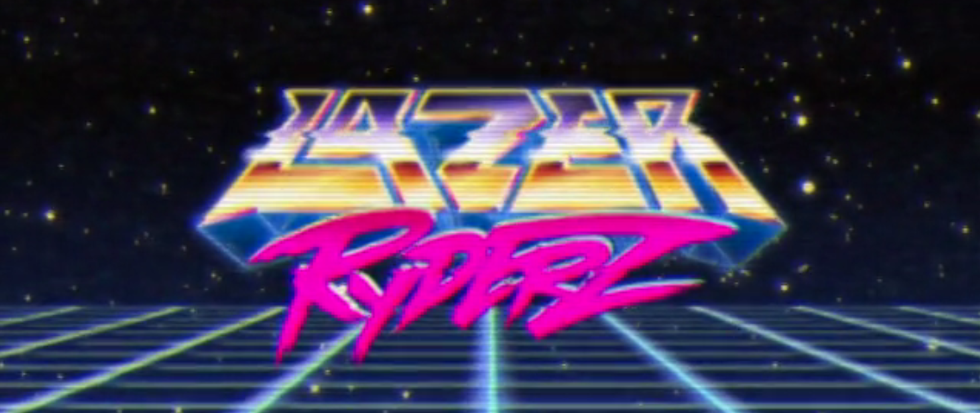
Saturday Morning Star Rides in Flinthook
Videogames and cartoons have been swirling around each other since the former entered the scene. Old arcade cabinets were dressed up and down with enticing images that the on-screen graphics couldn’t quite live up to at the moment. But the sense of mania that embodied Looney Tunes, and soon the entire gamut of Saturday morning advertainment delights, was quickly approximated from Pac-Man onward. There are a number of mostly Disney-related early synergies, but the strengths of one medium often didn’t translate in the execution of the other. The videogames would drone on, with little narrative arc, well past the 22-minute length of most Saturday morning cartoons. And those same cartoons, as time lurched, rarely had the budget to consistently amp up the madness that games would come to embody.
Lately though, as technology pushes both, videogames have crossed and intermingled more fully with the worlds of cartoons. Kingdom Hearts and its multi-verses of madness are a prime example, and most recently Cuphead embraces the spirit of animation and transplants it directly into a bullet-hell platforming planescape. But these videogames still inject maximum videogame ambiance, eating hours like they were quarters—less a weekend smorgasbord of cel-packed delights and more of the magic of animation siphoned in without the framework, running the risk of quick and total oversaturation. I don’t crave cereal while playing these games; if I start one without changing out of my pajamas I run the risk of saluting the sunset in them, which I personally do not cotton to.
Those feelings of delight, in completely submitting oneself to a rainbow-blasted aesthetic that built very strange rules and logics only to bring them crashing down when the plot required it, started to glimmer up to the surface of my mind while playing Tribute’s Flinthook. This is a game that grinds up all the best that the late 90’s had to offer in scanlines, a distillation of 8-bit platforming rudiments, 16-bit flash while cheekily mechanizing on-screen slowdowns, and a cartoon mashup of space and pirate perfectly suited to sell action figures, printed backpacks, and anything else with planets for a logo.
On paper, Flinthook can seem somewhat skeletal: procedurally arranged levels with increasing difficulty, an arsenal of perks to unlock and arrange based on preference, and a familiarity with the best lessons of the platforming greats such as Mega Man X. The lore is ancillary but delightful, to be skimmed from relics randomly found in most playthroughs and achievements unlocked, but there aren’t many cutscenes or text boxes to string you along. Which isn’t to say there’s a lack of motivation: you’re a ghost pirate out on a rescue mission, but what’s the harm in pocketing some doubloons on the way? This game embodies the delightful grind: play, unlock perks, die, buy some buffs, adjust your loadout, play again.
Where Flinthook oozes Saturday morning charm is in the sum of its parts, aesthetic and ludological. The soundtrack fires on all cylinders, the spritely animation is crisp and expressive, the hordes of pirates you face are whimsically distinct. You’ll blow past quite a few blustery hucksters, sad sacks, bug-eyed miscreants, and stoic strongmen. The bosses are wily and expressive, spewing bombs and mayhem and forcing you to use every trick at your disposal. Speaking of your personal arsenal, you’re also afforded a number of options for managing the potentially breathless chaos that you’ll encounter: a belt that slows time briefly so you can gather your thoughts or navigate specific barriers, an adjustable and trusty pistol, and the almost-eponymous Quickhook that transforms you into a space-pirate Stormshadow. This game transforms you into an omni-directional dash machine, coupled with wall-jumps and sub-weapons, to complete a wide array of strategies to clear rooms bursting with obstacles and obstinate hirelings.
The most Saturday morning feeling of all comes from the quickness of each playthrough. The field is flooded with procedurally-generated platformers, many equally indebted to the same spiritual forebearers as Flinthook, such as Spelunky, 20XX, Dead Cells, and many others. What sets this one apart is the total commitment to the Saturday morning cartoon experience, beyond merely the impeccably tailored aesthetic trappings. Like a good pirate attack, you want to get in and out before thinking too hard on the premise and the logics of things like wooden spaceships, and this game lets you dip in and out of a match without pushing you to binge and feel weighted by the demands of excess survival. Win or lose each run earns you a little something, making the next a smidge more bearable, but Flinthook is best enjoyed in almost-half hour chunks. It’s the game I play between games, when I want to kill a small amount of time that might otherwise be wasted on the loading screens of many other current titles. Each playthrough is a blast of adrenaline that demands your full attention, but Tribute knows not to spoil a good thing, and allows plenty of opportunities to step away, assuming that the player has been fully satiated and will likely be back for another taste before too long.
Which was the fundamental power of Saturday morning cartoons. We would be inundated with those worlds but just enough to avoid complete saturation, so our heads might swim with these images in class and on the playground, casting our own headcanons and crossing dimensions on living room carpets. Flinthook strips the malevolent advertising intrinsic to the medium but maintains the zany execution, melding the best in both forms to create a succinct, episode-sized bite of animated and acrobatic gameplay. Of all the videogames with the potential to pillage some cartoon booty, Tribute’s latest is perfectly poised to hustle away all that gold and smirk all the way back aboard the star-schooner.





